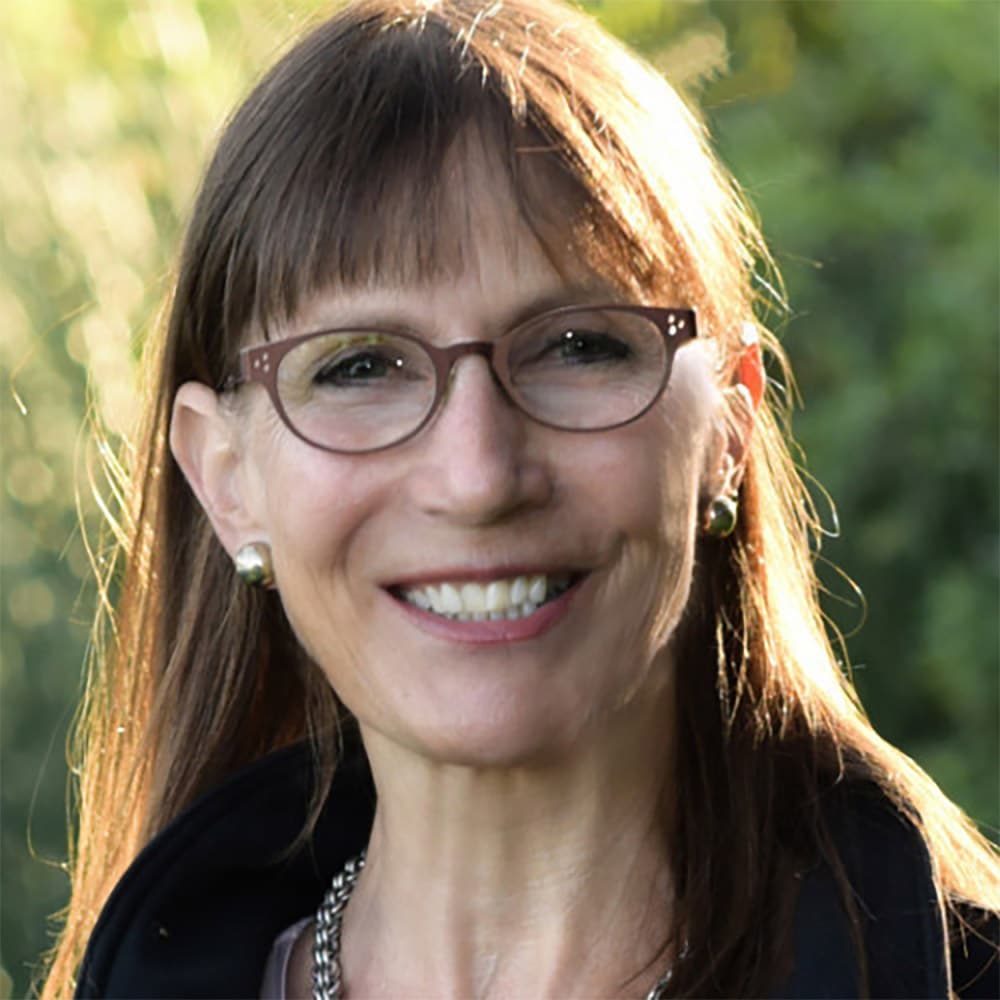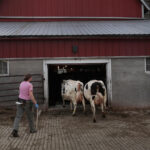Interview: Goop’s Chief Scientist On … Goop and Science
Goop is an upscale wellness and lifestyle brand founded by Oscar-winning actor and entrepreneur Gwyneth Paltrow. It has also, for years, been the target of criticisms from many doctors and science advocates, who argue that the company occasionally traffics in pseudoscience.

Gerda Endemann has a Ph.D. in biochemistry and metabolism from MIT. She is now the chief scientist for the lifestyle and wellness brand Goop.
Visual: LinkedIn
Indeed, Goop’s willingness to dabble in things like energy healing, detoxification regimes, and crystals have earned it widespread mockery online — and at least one brush with regulators. But despite — or perhaps because of — the criticism, Goop has kept growing, passing $250 million in valuation in 2018 and launching a new series on Netflix in January.
The company has also beefed up its efforts to respond to its critics. When asked about the company’s history of pseudoscientific claims earlier this year, Paltrow told CNBC that Goop had developed an “incredibly robust and brilliant science and regulatory team” that was “led by an MIT scientist.”
Curious, Undark called up that scientist, Gerda Endemann, who joined Goop as the senior director for science and research in June, 2018. Endemann’s resumé includes a Ph.D. in nutritional biochemistry from MIT, and she has spent most of her career in nutrition education and the supplement industry. Our call was monitored by Goop’s senior vice president of communications, Noora Raj Brown, who began ushering us off the phone after a bit more than 30 minutes. Excerpts from our conversation — edited for length and clarity — are below.
Undark: How did you get into your area of expertise? What are the questions that have animated your research?
Gerda Endemann: Questions about fat nutrition and fat metabolism have been a common theme throughout the years. It was of interest to me because I grew up in a family of health food nuts, who believed in eating natural whole foods, and that included plenty of fat.
I felt sorry for my friends who had to eat margarine and weren’t allowed whipped cream.
UD: Why did you settle on this area specifically?
GE: I know so many people struggle with “Oooh, what should I do with my life?” but there was never even a question. I mean, my father sold vitamins. My mother grew organic fruits and vegetables. When I was in high school, I spent hours poring over the USDA nutrient database.
UD: How did you end up at Goop?
GE: After I had [a nutrition education business], I transitioned to the dietary supplement industry. One of the reasons was that I was pretty frustrated trying to find the exact dietary supplements that I wanted to be able to recommend to clients and friends and share with people.
I learned a lot about how to make high quality dietary supplements, and a lot about the FDA, and why we can say certain things and why we can’t say other things, even though they’re true and valuable about dietary supplements. Most of what you hear about dietary supplements is, “Oh, people make outrageous claims,” right? But it goes the other way too. Even if something’s been shown to be very helpful for disease, we can’t say that.
UD: Okay, so you’re working in supplements, and also feeling frustrated with the FDA.
GE: A colleague I’ve worked with recruited me at that point to Goop. This was about a year and a half ago. They were just building up a science and research expertise.
Goop needed — wanted to have more science and science expertise. They’d grown from a very small company with a certain focus and were expanding more into wellness products and even supplements and were very eager to have … science expertise. And so, when I first joined I was involved somewhat in product development, but primarily in claim substantiation — just helping people understand what was true, what wasn’t, what did we know, what didn’t we know, what should we say, what shouldn’t we say?
UD: So what does a typical day look like for you?
GE: One thing I’ll do is if somebody else has some material that they’d like reviewed for scientific accuracy, or just to know, “Is this real or should we be worried about this?” — they’ll send these to me to get another viewpoint. I have to say that people at Goop really take that seriously. If I raise red flags, they’re really taken seriously.
Another thing I do is I write science-based articles for our readers …“Gerda explains fats,” something [like that].
We are writing science-based articles that provide well-researched information about diseases and health conditions. What we’re aiming for is to be the kind of best friend, scientist you wish you had when, for example, a parent might develop Alzheimer’s disease.
We try to summarize the conventional kinds of treatments that we fully expect to utilize that you would find if you went on to the [National Institutes of Health] website or the Mayo Clinic website. You know, we summarize that, but we go further and provide the kind of information that is harder to get in any sort of vetted form. So like, what are alternative therapies that you may have heard about, and is there anything to them? Should I be afraid of them? Should I try them? Should I ask my doctor about them?
UD: When you’re talking about alternative therapies, how do you convey uncertainty? How do you talk about risk in responsible ways?
GE: We will say, “There’s one small study on this. You know, it’s suggestive, it’s interesting, but don’t change your behavior based on that.” Or we’ll say, “Wow, there’s a meta-analysis that shows this. Talk to your doctor about whether this might be worthwhile for you to consider.”
Or we’ll say that, you know, people have been talking about a certain herb for a certain indication. And we’ll be honest — there’s great traditional evidence showing, suggesting that this herb could be really useful. We’ll also summarize the scientific evidence, which may or may not exist. Anyway, we try to make it very clear, what we know and what we don’t know.
UD: Why do you think it was important for Goop to have a scientist there? What role were you stepping in to fill?
GE: Well, I think the company, everybody at Goop, all the way up, really wants to be transparent with our readers, and to let our readers know, just, hey, here’s some great, fun information you might want to know. And this is just a preliminary idea that you might be interested in. On the other hand, here’s something that’s really supported by science.
I think, all along, Goop really just wants to be transparent about providing all sorts of alternative therapies and new ways of thinking to people, but they definitely want to be transparent about the status of any one recommendation or therapy. I think I was brought in as part of an effort just to say we need more — we really want more help doing this, we really want more expertise doing this.
UD: Who do you imagine your audience to be?
GE: I imagine the ideal reader to be someone who’s curious about health and just living a full life. I have to say, I’ve learned so much about alternative healing modalities since joining Goop. I’ve been in touch with the dietary supplements industry world and somewhat with traditional herbal medicine, but I really hadn’t been exposed too much to alternative healing modalities. I’ve learned so much about them since joining Goop, and I understand that our readers just are curious. They’re curious about these things. And just because they haven’t been extensively researched yet, or proven yet, doesn’t mean they aren’t worth caring about, as long as you know that, hey, this is something interesting. People are doing this. This is what we know, this is what we don’t know.
As Gwyneth herself has said, there have been a few mistakes, a few times where things were stated where it wasn’t clear that maybe this was not well substantiated. But I think our readers are interested in this material. They hopefully know that, that we have a very good system now for vetting our claims, and hopefully, they are comfortable with how we present material.
[At this point, Raj Brown jumps in to ask Endemann to talk about something called “wellness tags.”]
We have a system for telling our readers whether material — whether it’s a question and answer article with a medical practitioner of some sort, or whether it’s something we write in-house — we have decals that we put on the page. For example, if something is just some crazy, goofy, wacky idea that we want to put out there, we’ll have a decal that says “For your enjoyment: There probably aren’t going to be peer-reviewed studies about this concept, but it’s fun, and there’s real merit in that.”
Going all the way up to the most scientifically-substantiated kind of content would be the decal that says “Rigorously tested.”
UD: Is there something similar on the Netflix show?
GE: I haven’t been involved with the Netflix show.
[Raj Brown cuts in to say that they have “done a ton of background research and vetting for the experts on the Netflix show.”]
UD: There have been criticisms of Goop over the years, as you alluded to, with people raising concerns about Goop making claims that are pseudoscientific or not based in evidence — or offering misleading health information. What do you make of those concerns?
GE: What I’m gathering is that, because of Gwyneth Paltrow’s exposure, if people criticize her, they get exposure. So Goop has just been an easy target for people.
I’m a scientist and a science advocate. And I do not hate Goop. I think true scientists appreciate intriguing new hypotheses. And because scientists like to have fun researching ones and hypotheses that have been called crazy, have frequently been, subsequently been the subject of research and have turned out to be very interesting. I don’t really read a lot of the criticism that’s written about Goop. What I have seen is scientists, medical doctors saying, trying to act as if Gwyneth talking about gluten-free diets is whacky. Gluten-free diets are not whacky. There is more and more scientific evidence that people are intolerant of not just gluten, but other proteins in wheat. So I think that a lot of that criticism — possibly not all — but a lot of that criticism, it’s just unfounded and unfair.
It just seems so bizarre to me that Goop is picked on so much, because we are truly better about our claims than 90 percent of the companies out there. There are so many companies that sell products, and there’s so many whacky therapies that just make outrageous claims. You see them constantly. And this is nowhere in that category, nowhere near as bad.
[Raj Brown begins to hurry us off the call.]
UD: When people see articles on the science of energy healing, or detoxifying super powders and crystal water bottles for sale — when they see that alongside other kinds of things, which, as you point out, may have more clear evidence behind them, some people are going to ask: Why are these two things in one place? And is it clear that they are different? As a scientist, how do you see some of these claims existing alongside the stuff you’re describing?
GE: Yeah, I guess I see it as just being open to wild and crazy possibilities that we may not understand now. And I’m curious about them. I mean, I’m not saying that every single thing that would have been ever published at Goop that I’ve even seen — I think is perfect. But I think it’s fun.











Comments are automatically closed one year after article publication. Archived comments are below.
This woman may have degrees in areas of science but she certainly does not seem to apply the classical scientific method at Goop. More like a lawyer making sure they do not get in trouble with claims. Energy crystals? I’d like to see the data from that scientific experiment.